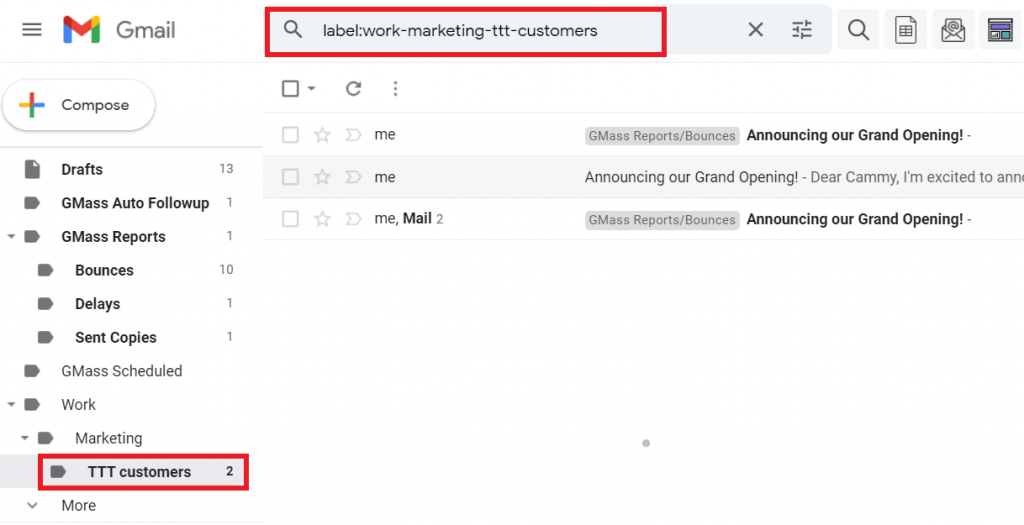Great Advice To Selecting An Email List Site
Great Advice To Selecting An Email List Site
Blog Article
What Do I Need To Consider When Buying A Hematologist Email List?
In order to ensure that your list of hematologists is effective, pertinent, accurate and compliant to the law, you need to pay attention to several crucial aspects. These are the most crucial considerations to consider. Data Accuracy and Quality
Source of Data: Confirm that the data provider relies on reliable sources of data, such as medical directories, professional directories or opt-ins verified by Hematologists. The validity of the list is determined by how well the information was gathered.
Verification and Updates: Contact your provider about their procedure for verifying and updating data. Emails must be verified to eliminate inactive or inaccurate addresses. Regular updates are essential to ensure that the list stays accurate, as healthcare professionals can change jobs or institutions.
Specialization and Segmentation: Be sure that the list is tailored to hematologists. It can also be further segmented by subspecialties, for instance (e.g. pediatric hematology, oncology) or the location, the years of experience, or hospital affiliation. A well-segregated list helps you better target your outreach.
2. Legal Regulations
Data Privacy Laws : Ensure your list is compliant with all relevant laws on data privacy like the California Consumer Privacy Act, General Data Protection Regulation, in Europe or the General Data Protection Regulation, in the U.S. This means email addresses have to be gathered with appropriate consent.
The CAN-SPAM Act is a law in the U.S.A. make sure that the list complies CANSPAM Act that governs commercial emails communications. Infractions to the CAN-SPAM Act can result in penalties. Furthermore, your email could get marked as spam.
Opt-in Consent: The list of recipients for emails should only include hematologists that have explicitly consented to receive emails from a third-party. Uninvited emailing to patients who don't have consent could result in poor engagement aswell being a legal issue.
3. Provider Reputation
Examine the history of the company. To determine if the business is reliable, look for reviews, testimonials, as well as case studies. A well-established company with a track record of providing high-quality and reliable information will be more likely.
Transparency: Select a service who is open about where and how data came from. It is best to avoid companies that are unclear about the data collection methods.
Customer Support - It is important to choose a provider who offers excellent customer service. Strong support is important if you have questions or need help with technical issues, compliance issues or list customisation.
4. Cost and Return on investment (ROI).
Pricing Models: Consider the pricing options available in the market, and whether they're flat rate, pay-per-contact, or subscription. Make sure the price aligns with the potential ROI. Make sure you balance the quality of your list and quantity with your budget.
Policy on Refunds or Replacements A reputable company will offer refunds or replacements in the event of invalid or out-of-date email addresses. Clarify the terms of this policy prior to making the purchase.
Check out the features on the list such as segmentation options and guarantees on data accuracy from the service provider, along with the price. It might not be worthwhile to purchase the most affordable listing when the data quality is not good.
5. Use and Ownership of Data
Multiple Use: Understand the rules of use applicable to the email list. Multiple Use: Be aware of the rules of use for the email lists. Some service providers will only allow you to use the list only for one campaign, while others might provide full ownership with unlimited usage rights.
Exclusive vs. shared lists: Ascertain if the list is exclusive to your business or shared with other buyers. Exclusive lists are more likely to generate more engagement since the contacts have less exposure to marketing emails.
6. Data Format and Integration
Integration with CRM and Email tools: Make sure that the list can be easily incorporated into your CRM platforms or email marketing platforms. The list should come in standard formats, such as CSV or Excel to ensure easy integration.
Ease of Use: Assess the ease with which you can manage and filter the list. Lists that are hard to sort and manage can hinder the effectiveness of marketing campaigns.
7. Ethical Aspects
Relevance to Hematologists: Ensure that your outreach emails are pertinent to hematologists. Sending out content that isn't pertinent to their expertise could affect your brand's reputation and cause lower engagement.
Avoid spam practices: Do not bombard recipients with a lot of emails. Inadequately sending emails can lead to spam complaints and damage your reputation as a sender.
We also have a conclusion.
It is important to consider the pros and cons of purchasing the list of hematologists. To ensure a reliable, accurate and efficient list, you must be aware of the quality of the data and also the level of compliance to privacy regulations. The importance of segmentation and legal compliance will maximize your ROI, while ensuring a good reputation for your brand. View the top hematologists email list for blog info.
What Are The Most Important Things To Take Into Consideration When Purchasing An Urgentcare Email List?
If you're considering purchasing an urgent care email list, make sure to think about a range of factors. This includes whether the list is accurate legal, efficient and effective and also relevant to your goal for marketing. Here are key considerations. Data Quality and Accuracy
Source of Data: Ensure the provider collects their data from reliable sources such as medical associations, healthcare databases, or directories for professionals. Avoid lists that are compiled using scraping, or using unreliable techniques. They may contain inaccurate or outdated data.
Verification procedure: Confirm that the email list is regularly updated and verified. A reputable service provider will use a rigorous procedure of verification to get rid of invalid or out-of-date email addresses. This improves deliverability and reduces bounce rates.
Segmentation of Lists: The list can be classified according to the following factors locations (city/state/region) as well as the size (e.g. urgent care centers are comparatively small) and the specialties offered (e.g. diagnostics and pediatrics) and roles taken on by decision-makers. A targeted list enhances the value of your outreach, and also increases the rate of engagement.
2. Legal Regulations
Data Privacy Laws : Ensure that your list is compliant with the applicable laws on data protection for example, in Europe the General Data Protection Regulation, in the U.S. the California Consumer Privacy Act and any other local regulations. Email addresses must be legally collected and subject to consent.
CAN SPAM Act Compliance In the U.S. your email marketing campaign must comply with CAN SPAM Act. Incorporate the physical address of your company, beware of false subject lines, and offer an opt-out option that is clear. Failure to comply could result in penalties and could damage your company's image.
Opt-In Consent: Make sure the addresses that are listed have been acquired with an explicit opt-in consent, meaning recipients have agreed to receive marketing from third parties. This can reduce the likelihood of legal and spam-related complaints.
3. Provider Reputation
Establish Provider: Select a provider who has a track record of delivering top-quality, reliable email lists. You can assess a service's reliability by reviewing reviews, testimonials and cases studies.
Transparency: The company should be able to explain how the data was sourced and when it's up-to-date. If the provider cannot be able to provide clear explanations of their data collection methods It could be a sign of poor quality data.
Customer Support: A dependable customer support team is crucial in case you need assistance in tackling technical issues and list customization, or even compliance. A responsive service provider can assist you in maximising the value of your email database.
4. Return on investment (ROI) and cost
Pricing Models: Email list providers typically offer different pricing models such as pay-per-contact and flat costs. Consider the pricing model with respect to your marketing budget as well as the anticipated ROI. The cost of your list must be weighed against the quality and relevance of the information.
Refund or replacement policy A reputable supplier usually offers a replacement or refund policy when a significant portion of email addresses are invalid or not deliverable. Be sure to read the policy's terms prior to buying.
Value for money: Don't choose the most affordable option. Instead, look for lists that are precise and include a thorough segmentation. Making a commitment to a list that is high quality will increase engagement and provide a better ROI.
5. Data Usage and Ownership
Lists which can be used multiple times or just for one campaign: Be certain that the list will be used only once or several times. Lists that can be used for multiple purposes are preferred, especially when you plan to conduct outreach campaigns on a regular basis.
Exclusive vs. Shared Lists Decide if this list belongs to you as a whole or is shared by other buyers. The shared list can cause tired recipients who could receive messages from multiple companies.
6. Data Integration and Format
CRM Compatibility: Make sure your list of email addresses is delivered to you in a compatible format like CSV (Comma Separated Values) or Excel. This will ensure a seamless integration and allows you to start your campaigns quickly.
User-friendly Ease of Use: Email lists must be easy-to-manage and segment by particular requirements. An organized list will improve the effectiveness of targeting and personalization.
7. Ethical Questions
Relevance and value of content Content's value and relevance: Urgent care providers are busy professionals, which means the information you send out should be helpful and pertinent. Make sure your messages are tailored to meet their particular needs, like medical equipment, medical supplies, or healthcare technology that are compatible with urgent care operations. Sending irrelevant content can damage your brand reputation and decrease engagement.
Avoiding Spam: Be mindful of the frequency with which you send emails. Spam complaints could be caused through sending too many emails or messages that are not required.
We also have a conclusion.
Focus on data accuracy and legal compliance when purchasing the urgent care database. Also, consider the credibility of the vendor. Lists should be segmented regularly and must adhere to data privacy laws. Increase engagement by investing in a well-targeted high-quality, well-organized list and then sending relevant content. Read the best urgent care email list for blog advice.